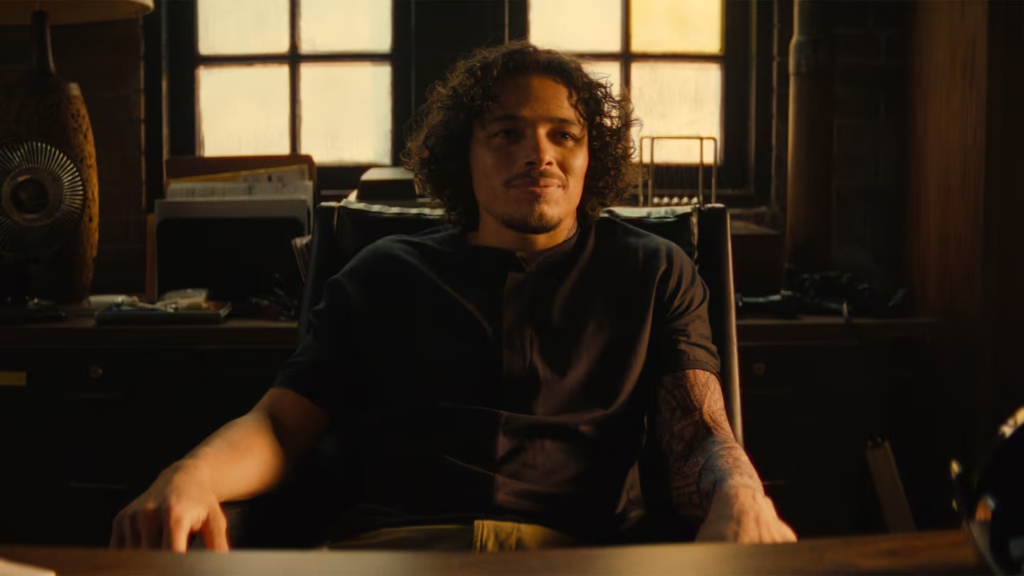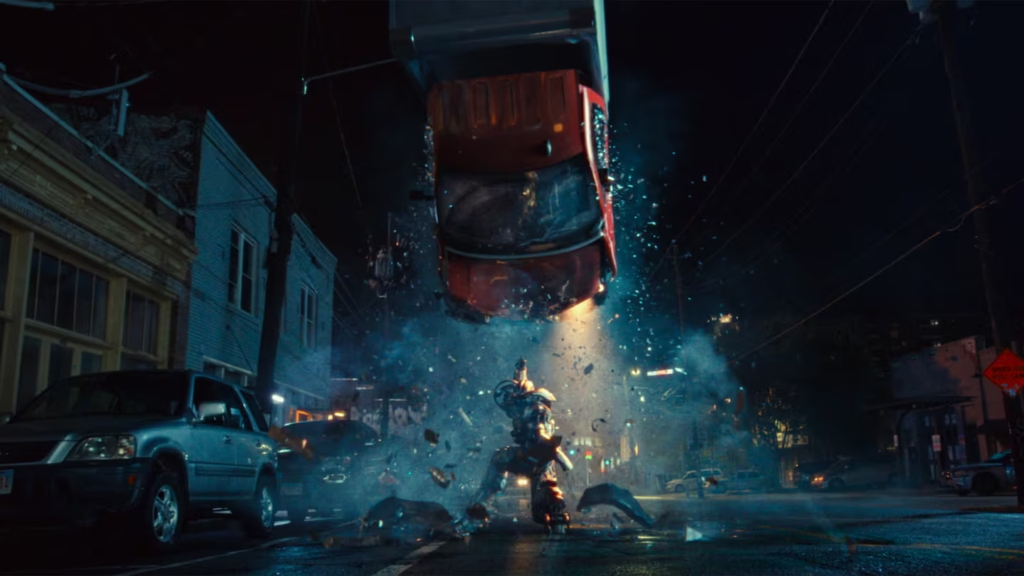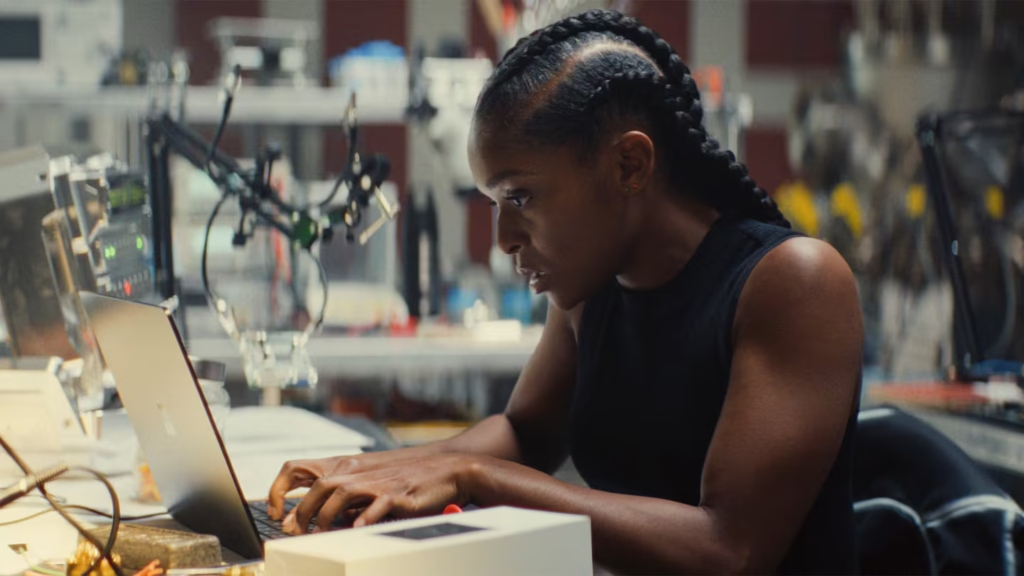Ironheart Flop Proves Marvel’s Streaming Strategy Is a Disaster – Read Why Fans Are Demanding a Return to Blockbuster Films…
Why ‘Ironheart’ Is the Final Straw in Marvel’s Streaming Disaster – subscribe to marvelphase5
Marvel Studios just can’t seem to find its groove on the small screen. With the release of Ironheart, what was once one of the most celebrated entertainment brands now finds itself in crisis. This six-episode Disney+ series centered on Riri Williams, a young prodigy with Tony Stark-level intellect, fails to ignite excitement or confidence in the future of the MCU’s TV ambitions. From questionable writing choices to flat characters and plot holes you could drive a Quinjet through, Ironheart is drawing fire from both critics and fans. In this breakdown, we explore how this misstep fits into a larger trend of Marvel’s TV troubles. If you care about where the MCU is headed, now’s the time to subscribe to marvelphase5 and stay ahead of the cinematic curve.
Ironheart: Another Miss for Marvel Television
Once hailed for cinematic excellence, Marvel’s recent attempts to expand the MCU via Disney+ have diluted the brand’s magic. Ironheart is just the latest example in a string of low-impact, forgettable shows that appear more like corporate quota fillers than passionate storytelling.
Riri Williams (Dominique Thorne) may have been introduced in Black Panther: Wakanda Forever, but her transition to lead protagonist is rocky. The series opens with a narrative built on shaky motivations: expelled from MIT and hunted by a weakly developed magical crime boss, Riri’s journey feels more like a scattered side quest than a core Marvel storyline. It doesn’t help that the central plot device—an AI copy of her deceased best friend—feels both emotionally manipulative and logically flawed.
Beyond Riri’s arc, the show fails to provide an engaging villain, a compelling sense of urgency, or even memorable action sequences. The result is a flat, unfocused show that attempts to blend tech and magic without understanding either.

Why Are Fans Rejecting ‘Ironheart’ So Strongly?
Fan rejection stems from a layered combination of poor character development, lack of narrative stakes, and Marvel fatigue. Ironheart does little to develop Riri into a character audiences can rally behind. Rather than highlighting her genius or trauma in meaningful ways, the series meanders through illogical plot devices and stilted dialogue.
Even worse, the show makes morally questionable decisions feel weightless. Riri teams up with a magical crime syndicate with barely any internal conflict, undermining the show’s thematic weight. By episode six, any opportunity for redemption is buried under forced exposition and a last-minute villain cameo that feels like a desperate play for future relevance.

Is Dominique Thorne the Right Fit for Riri Williams?
While Dominique Thorne brought a reserved confidence in her film debut, her performance here feels overly restrained, almost disengaged. It doesn’t help that the script doesn’t allow her to explore the complexity of her character. Instead of presenting Riri as a layered young inventor dealing with loss, guilt, and genius, the series leans into teen melodrama and awkward romantic subplots.
Audiences needed an anchor for the next generation of heroes. Thorne, burdened by thin characterization and erratic pacing, doesn’t get the runway she deserves to soar.
What Went Wrong With The Hood and His Rogues?
Anthony Ramos’ Parker Robbins, aka The Hood, was billed as a gritty, magical antagonist. What fans got instead was a caricature. The Hood’s motivations are unclear, his power source is mystical yet underexplored, and his crew lacks any sense of threat. Instead of tension, we get quirky gimmicks: a drag queen hacker, a firestarter clown, and disposable side villains.
This attempt at stylized villainy falls flat. The ensemble feels like an SNL parody rather than a real threat to Riri or the MCU at large. The fact that Eric Andre’s character is dropped with no explanation encapsulates the show’s chaotic energy.


Does ‘Ironheart’ Contribute Anything to the Larger MCU?
In short, no. Like She-Hulk and Secret Invasion before it, Ironheart appears to exist in a narrative vacuum. There are vague connections to Iron Man’s legacy, but these come too late and with little emotional payoff. A surprise cameo in the final episode suggests bigger things, but by then, most viewers have tuned out.
This kind of storytelling—building to something that may or may not happen—is part of why Marvel’s TV content feels disposable. If Ironheart doesn’t matter to the larger story, why invest the time?
What Can Marvel Learn From This Flop?
The critical failure of Ironheart underscores a larger problem: the quantity-over-quality approach. Marvel is stretching its storytelling thin across multiple series that lack cinematic scope and compelling scripts. Fans aren’t looking for filler content—they want heroes with purpose, villains with impact, and stories that actually shape the MCU.
Marvel needs to recalibrate. That means:
- Fewer TV projects with higher production and narrative quality.
- Returning to character arcs that actually evolve.
- Building real stakes that connect with the cinematic timeline.
Until then, audiences may continue disengaging from MCU content, especially if every new show feels like a glorified trailer.
The End of Marvel’s Streaming Era?
Ironheart was meant to signal a new era of tech-meets-magic storytelling. Instead, it’s a cautionary tale. With inconsistent tone, logic-defying plot twists, and characters that don’t stick, it exemplifies the growing disconnect between Marvel Studios and its once-loyal fanbase. The writing is on the wall: it’s time for Kevin Feige & Co. to pause the streaming spigot and refocus on what Marvel does best—cinematic experiences that actually matter.
If this series is Marvel’s roadmap for the future, they might want to reroute. Until then, keep your eyes peeled and subscribe to marvelphase5 for honest updates and smarter MCU insights.



